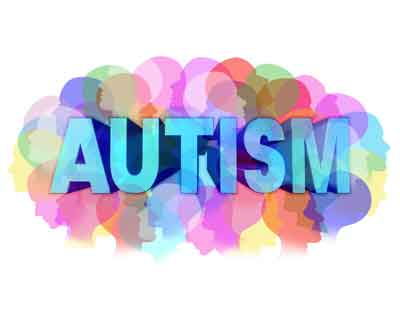- Home
- Editorial
- News
- Practice Guidelines
- Anesthesiology Guidelines
- Cancer Guidelines
- Cardiac Sciences Guidelines
- Critical Care Guidelines
- Dentistry Guidelines
- Dermatology Guidelines
- Diabetes and Endo Guidelines
- Diagnostics Guidelines
- ENT Guidelines
- Featured Practice Guidelines
- Gastroenterology Guidelines
- Geriatrics Guidelines
- Medicine Guidelines
- Nephrology Guidelines
- Neurosciences Guidelines
- Obs and Gynae Guidelines
- Ophthalmology Guidelines
- Orthopaedics Guidelines
- Paediatrics Guidelines
- Psychiatry Guidelines
- Pulmonology Guidelines
- Radiology Guidelines
- Surgery Guidelines
- Urology Guidelines
Antipsychotic drug use linked to autism risk in youths

The side effects of antipsychotics can be quite problematic and researchers have found that the proportion of adolescents with autism or intellectual disability has increased among youths treated with these medications.
Antipsychotics are a class of psychiatric medication primarily used to manage psychosis, including delusions, hallucinations, paranoia or disordered thought and principally for schizophrenia and bipolar disorders.
The researchers also found that the number of adolescents with autism spectrum disorder being prescribed antipsychotics has also increased over the years in the US.
For the study, the team performed a meta-analysis of 39 studies and over 350,000 youths with mental illness were examined on the frequency and time trends of antipsychotic prescribing in youth with autism spectrum disorders or intellectual disability.
"The side effects of antipsychotics drugs can be quite problematic, especially in children and adolescents," said lead researcher Christoph Correll from Hofstra University in the US.
When prescribing antipsychotics, it is imperative to regularly monitor both their efficacy and tolerability in patients through body weight, fasting lipids and glucose, extrapyramidal side effects, sedation, and sexual/reproductive adverse effects as well as to manage abnormalities appropriately, the researchers noted.
Antipsychotics are a class of psychiatric medication primarily used to manage psychosis, including delusions, hallucinations, paranoia or disordered thought and principally for schizophrenia and bipolar disorders.
The researchers also found that the number of adolescents with autism spectrum disorder being prescribed antipsychotics has also increased over the years in the US.
For the study, the team performed a meta-analysis of 39 studies and over 350,000 youths with mental illness were examined on the frequency and time trends of antipsychotic prescribing in youth with autism spectrum disorders or intellectual disability.
"The side effects of antipsychotics drugs can be quite problematic, especially in children and adolescents," said lead researcher Christoph Correll from Hofstra University in the US.
The results were published in the Journal of the American Academy of Child and Adolescent Psychiatry (JAACAP).
Currently, second-generation antipsychotics are the only Food and Drug Administration-approved medications for youths with autism. However, these are approved only for the symptomatic control of irritability and aggression.
Core symptoms of autism spectrum disorders (eg, social and communication difficulties) and core symptoms of intellectual disability, such as problems with understanding and responding appropriately to external data, did not appear to be affected by these medications.
Clinicians need to consider using psychosocial interventions that are proven to be efficient for behavioural dysregulation such as irritability and aggression, before prescribing antipsychotics to adolescents with autism or intellectual disability, the researchers suggested.
When prescribing antipsychotics, it is imperative to regularly monitor both their efficacy and tolerability in patients through body weight, fasting lipids and glucose, extrapyramidal side effects, sedation, and sexual/reproductive adverse effects as well as to manage abnormalities appropriately, the researchers noted.
behavioural dysregulationChristoph Correll from Hofstra UniversityJAACAPJournal of the American Academy of Child and Adolescent Psychiatrysymptomatic control of irritability and aggression
Source : IANSNext Story
NO DATA FOUND

Disclaimer: This site is primarily intended for healthcare professionals. Any content/information on this website does not replace the advice of medical and/or health professionals and should not be construed as medical/diagnostic advice/endorsement or prescription. Use of this site is subject to our terms of use, privacy policy, advertisement policy. © 2020 Minerva Medical Treatment Pvt Ltd